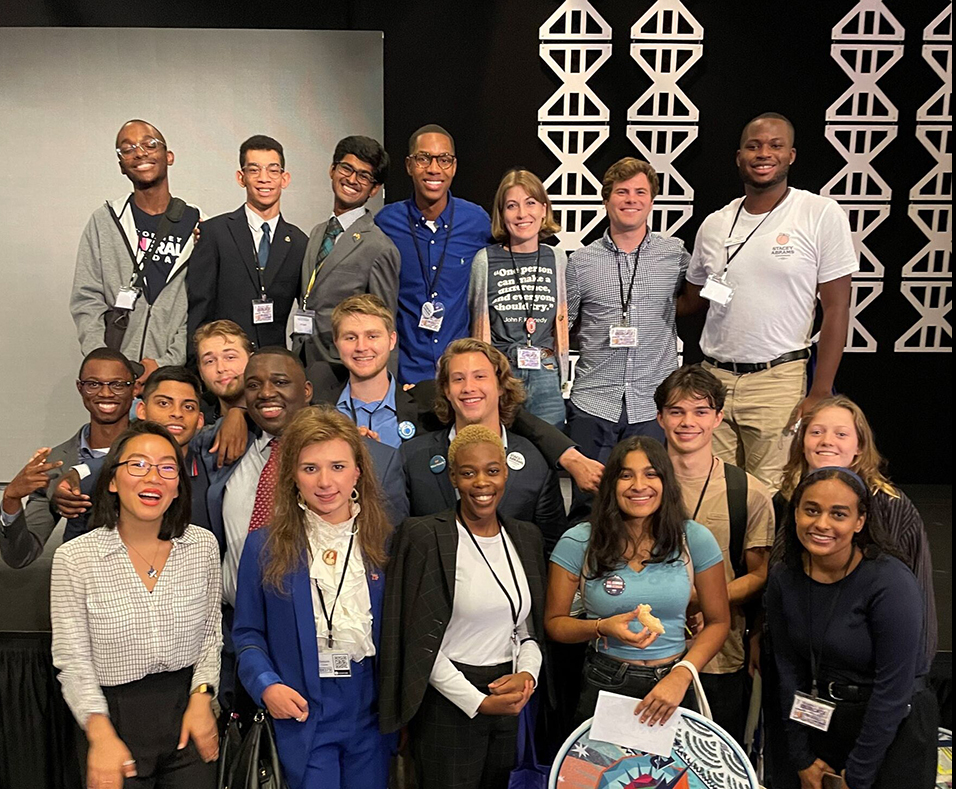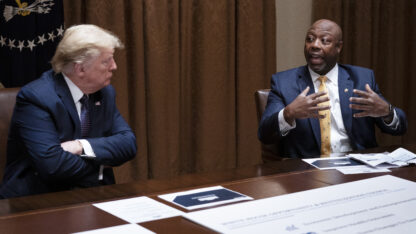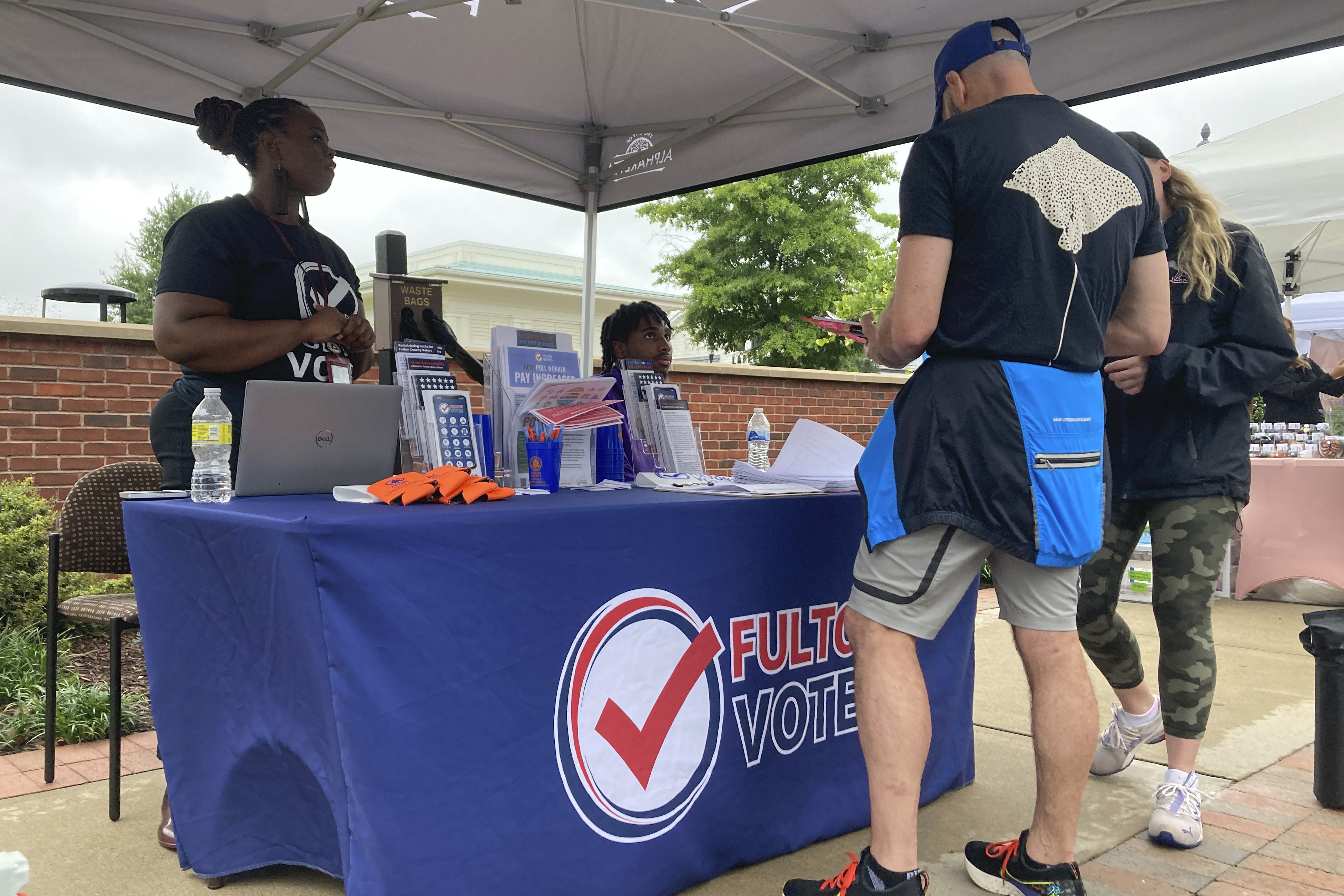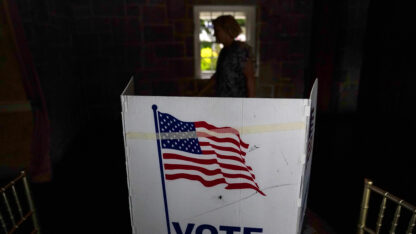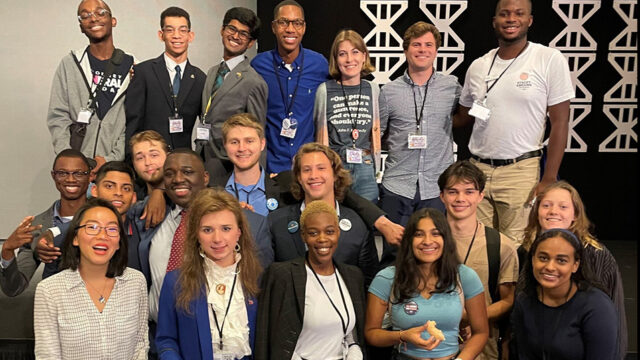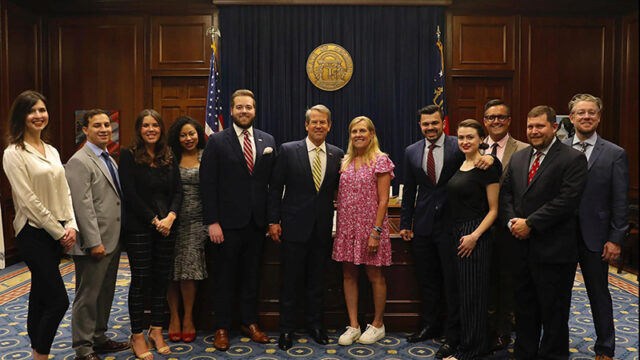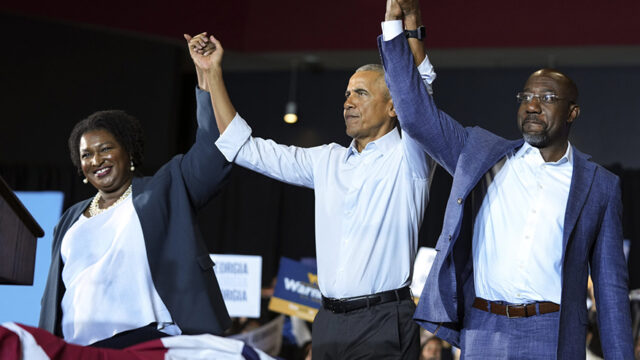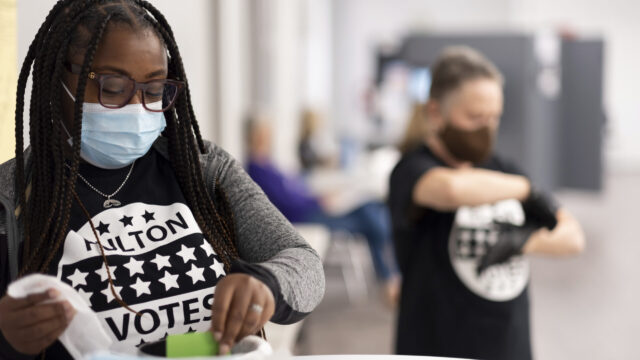For 23-year-old Jacquelyn Harn, most evenings over the past two months have been spent beside a phone or knocking on strangers’ doors.
As the executive director of the Georgia Young Republicans, she and hundreds of members have assisted in phone drives, campaign rallies and other party-based events supporting Georgia Republican candidates such as Gov. Brian Kemp, Herschel Walker and state Sen. Burt Jones who is running for lieutenant governor.
Most recently, the conservative-based organization knocked on over 4,000 doors in Columbus, Georgia, for Republican candidate Chris West.
“No one, including myself or anyone on our executive committee, is being paid for their work,” she said. “All of our efforts come out of passion. We make it our mission to bring in conservative voters from all walks of life and plug them into the fight.”
Former U.S. Sen. Kelly Loeffler maintained the same idea when she founded the Greater Georgia Project, a conservative-based voting rights nonprofit organization founded by Loeffler shortly after her loss for the U.S. Senate seat to current Sen. Raphael Warnock in 2020.
“We’ve been very focused on young voters; we’ve held over three dozen events at schools, from high schools to colleges, voter registrations, conversations, listening tours, and really just working with young people to let them know that their voice is so important,” she said.
Young registered voters in Georgia make up roughly 17% of the state’s population, with 2020 bringing forth a youth turnout that was above the national average of 50%.
The question that remains for political candidates and voting organizations alike is whether Gen Z voters will arrive at the polls at a larger or fewer rate in 2022 compared to 2020.
“When they have that contact, they start to see that it was not an intimidating process to talk about politics. It’s work that has to be done year-round, and not just in an election year.”
Former U.S. Sen. Kelly Loeffler, founder of the Greater Georgia Project
“It all starts from the ground up,” said Young Democrats of Georgia president Bryce Barry. “It’s so crucial to start getting young people involved now and investing in them early. That’s how you create lasting change.”
Like his political counterparts, the 21-year-old Morehouse College student has spent countless hours with his members, dedicating his time to volunteering in campaigns for candidates across the state.
The organization, which accepts members age 36 and under, has participated in events for Democratic candidates such as Stacey Abrams, Sen. Raphael Warnock and Rep. Lucy McBath.
While Berry acknowledges that he has seen a slight lack of optimism among many young Georgia voters due to recent political events such as the Roe v Wade Supreme Court decision and the passing of controversial voting legislation SB 202, he hopes that these events will only help encourage Gen Z residents to make their voices heard in the polls.
“Change is gradual, change is slow, but change is always possible, and it’s only going to come when we use our voice,” Berry said. “I want us to surpass what we did in 2020. I want it to surpass anything that has ever been seen in American history”.
“The voices of young people are critical in every election. Many question whether there is an enthusiasm gap with young people, and the answer to that is no — but there is a trust gap,” said Jaylen Black, press secretary for Stacey Abrams. “Many question whether or not a politician will do what they have promised to do, but the best way of knowing what someone will do is by looking at what they have done.”
While peer-led organizations such as the Young Democrats of Georgia and Georgia Young Republicans are leading the efforts in young voter awareness, a factor that frequently arises when looking at Gen Z voting patterns is whether political candidates themselves are successfully executing the best approaches to getting young voters to the polls.
“It’s so crucial to start getting young people involved now and investing in them early. That’s how you create lasting change.”
Bryce Barry, president of the Young Democrats of Georgia
“Campaigns misunderstand that just because Gen Z and Millennials have had technology basically their entire lives that all they need to do is post something on the Twitter machine, and that’s going to get someone to come and participate,” said Tammy Greer, a political science professor at Clark Atlanta University.
“Analogue is king. You have to actually touch your voter, regardless of age, before you go digital. Eighteen to 40 (voters) are continuously told, ‘why aren’t you engaged’ but then you don’t talk to them. It’s dismissive.”
“This isn’t about running ads or sending out tweets; this is personalized voter contact, whether it’s in formalized settings and stores, out meeting with kids so that we can just have that personal connection,” said Loeffler regarding Greater Georgia’s strategy for reaching out to Gen Z voters. “When they have that contact, they start to see that it was not an intimidating process to talk about politics. It’s work that has to be done year-round, and not just in an election year, and that’s where we are remaining really focused on in those dialogues.”
Andrew Abbott, president of the Georgia Young Republicans, credits social and personalized interactions with young voters have made it easier for GYR to increase membership and introduce undecided voters to conservative policies and ideas.
“It’s not all just about door knocking and making a ton of phone calls,” said Abbott, who works as a legislative director for the Georgia Senate. “We go bowling; we go shooting; we’ve been white water rafting. People like to have fun, and if you are able to have fun with your friends and talk about politics, then it’s even better.”
A long-withstanding notion in media has been that Democratic candidates traditionally have done more than their Republican counterparts to initiate conversation and elaborate on what are considered to be important issues of young voters.
“Our campaign is committed to meeting people where they are — whether that is at a concert, on a podcast, on a social media app, or more,” said Black. “Our team is comprised of a dynamic group of creative young people who are committed to ensuring we authentically reach voters by talking about issues that impact their lives and how Stacey’s plans to invest in Georgians will ensure that we mitigate some of the problems we’re seeing in our state.”
